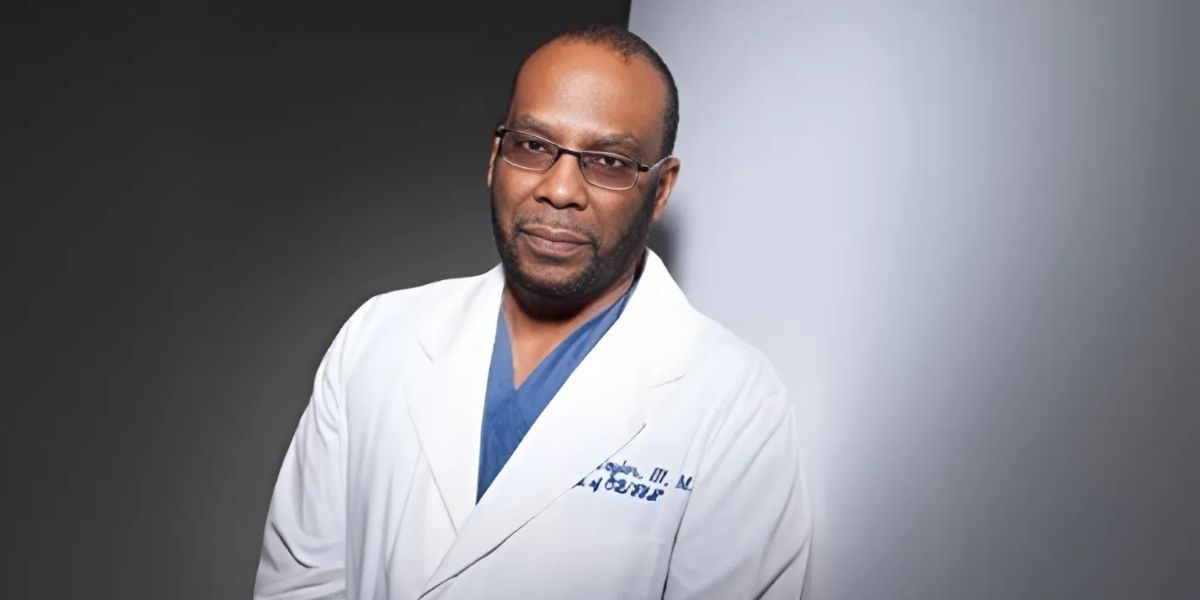By: Lennard James
In an era where public health challenges are escalating, and the autism epidemic is affecting an increasing number of families, board-certified OB/GYN and maternal health advocate Dr. Ken Taylor is raising a critical question: why are seasoned physicians, with decades of clinical experience and a profound impact on countless lives, being asked to repeatedly demonstrate their qualifications through rigorous board re-examinations?
Dr. Taylor, who has spent over 30 years at the intersection of women’s health and maternal-fetal medicine, is concerned about the shifting priorities in healthcare, where bureaucracy sometimes takes precedence over biology, and where talent is increasingly sidelined by testing.
“As physicians, we dedicate our lives to continuous learning. That never stops,” says Dr. Taylor. “But requiring doctors who’ve been in practice for 25 or 30 years, who have demonstrated excellence in clinical care, to sit for standardized exams to maintain licensure or board certification—it may be counterproductive and can undermine the legacy of care we’ve provided.”
His message is especially urgent as the country confronts the growing crisis of Autism Spectrum Disorder (ASD). According to data from the Centers for Disease Control and Prevention, ASD currently affects 1 in 36 children in the United States. The economic toll is estimated at $268 billion annually and could grow significantly as more children age into adulthood, requiring lifelong support.
For Dr. Taylor, the stakes are personal and professional. He has dedicated much of his recent research to investigating modifiable prenatal risk factors that might reduce autism prevalence. One such area of interest is maternal sleep apnea and its possible role in fetal oxygen deprivation—a condition known as in utero hypoxia.
“There is growing evidence that oxygen deprivation, even in brief episodes during pregnancy, may influence neurodevelopmental outcomes in children,” explains Dr. Taylor. “But we’ve often overlooked the impact of sleep-disordered breathing during pregnancy, especially among women who are not typically screened for it.”
Dr. Taylor is currently advocating for a multi-year research initiative to explore whether maternal obstructive sleep apnea could increase the risk of autism in children. Should this link be established, it might lead to advancements in early intervention and prevention, two key components in potentially reducing the incidence and long-term costs of ASD.
Yet, despite his innovative research agenda, national recognition, and decades of patient successes, Dr. Taylor is still subject to demanding professional re-certification requirements that, in his view, may not significantly enhance care outcomes.
“Many good doctors are being forced out of the field,” he says. “When we talk about the healthcare workforce shortage, we need to consider that many experienced physicians are retiring early—not because they want to, but because the system imposes increasing barriers to remain in practice.”
Retired doctors, Dr. Taylor argues, often hold valuable institutional memory and deep community ties. Yet, instead of being integrated as mentors, consultants, or educators, they’re excluded due to rigid or impractical licensing frameworks.
“Medicine has changed dramatically since I started, and we need innovation. But innovation doesn’t mean discarding the past,” says Dr. Taylor. “We should be leveraging the knowledge of retired and semi-retired doctors, not pushing them out with excessive tests.”
He proposes a more balanced approach—one that values lifelong learning but acknowledges the limitations of standardized exams as a sole measurement of clinical skill. He envisions a system where continuing education is measured through impact-based metrics: patient outcomes, mentorship contributions, research participation, and community engagement.
As autism diagnoses continue to rise, Dr. Taylor believes physicians like him should be empowered, not marginalized by repetitive assessments.
“The autism crisis is a pressing public health challenge. We need every experienced voice at the table, especially those who can explore potential links between maternal health and child development,” he says.
His call to action is not just for regulators and policymakers but also for younger clinicians. “Medicine is a vocation, not just a profession,” Dr. Taylor adds. “We must build bridges between generations of doctors, respecting both experience and innovation.”
As he continues to advocate for maternal health research, including prenatal screening tools and wearables like smartwatches to monitor blood pressure, oxygen levels, and glucose in expectant mothers, Dr. Taylor remains focused on the larger mission: saving lives, improving outcomes, and bringing compassion back to care.
“We don’t just treat patients,” he concludes. “We shepherd generations. And that’s something no exam can ever truly measure.”
Disclaimer: This article is for informational purposes only and does not constitute medical advice. Always consult your healthcare provider for personalized guidance regarding your health and treatment options.
Published by Joseph T.









